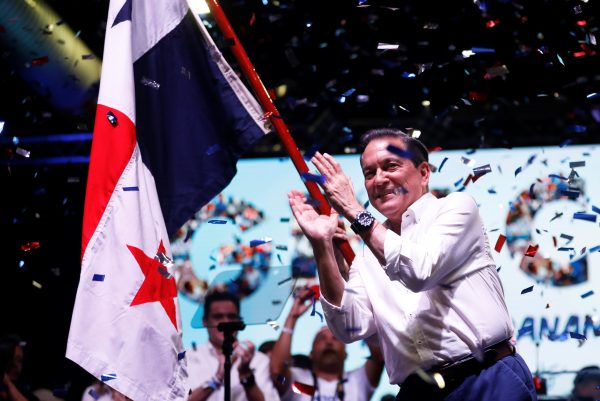In early May, Panamanians selected Laurentino Cortizo of the center-left Revolutionary Democratic Party to be their next president. His election comes as Panama faces a major challenge: strengthening its political institutions to clean up endemic corruption. The spillover effects of massive illicit finance operations at the behest of crumbling Venezuelan and Nicaraguan dictatorships make this effort even more urgent, and heighten the importance of Panama in US foreign policy.
Panama has been the region’s economic rocket, growing at the fastest rate in Latin America. Its GDP per capita of around $16,000 per year already surpasses that of some countries in the European Union — e.g., Croatia and Hungary. However, rapid growth has also placed a spotlight on Panama’s reputation as a place of abusive bank secrecy laws. The release of the so-called Panama Papers in 2016 tarnished the country’s reputation, exposing the involvement of Panamanian banks and law firms in money laundering, bribery, and offshore tax schemes for the world’s super wealthy.
Some of the country’s political class has been ensnared in region-wide corruption scandals, including bribes from Brazil’s giant Odebrecht totaling up to $100 million. In 2017, US officials even arrested former President Ricardo Martinelli in Miami for corruption and abuse of power.
This fight against corruption in Panama has entered a critical phase. Cortizo campaigned on passing a new constitution, and the durability of the nation’s institutional design is at stake. The national debate on a new constitution and set of political institutions occurs in an important regional context: Venezuelan dictator Nicolás Maduro’s and Nicaraguan dictator Daniel Ortega’s continued efforts to move their ill-gotten gains through the global financial system.
For instance, even though Maduro’s reserves are dwindling under the chokehold of US sanctions, a recent study demonstrated that Panama remains one of the epicenters for shell companies moving more than $1 billion on behalf of the Maduro regime. Therefore, Panama’s domestic efforts have suddenly entered the broader geopolitical struggle to restore democracy to Venezuela and Nicaragua, elevating the country’s place in the United States’ set of strategic interests.
The US must work with president-elect Cortizo to strengthen Panama’s institutions for combating corruption and financial crime, preparing it for a public reckoning if the Maduro and Ortega regimes eventually implode. After all, the fallout from any investigation or public accounting of Ortega’s and (especially) Maduro’s pilfered wealth could make past regional anti-corruption investigations, such as Brazil’s Lava Jato scandal or the United Nation’s International Commission against Impunity in Guatemala (CICIG), look like petty street crime by comparison.
